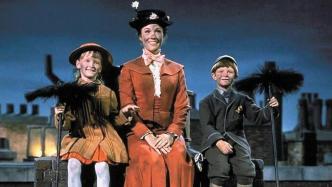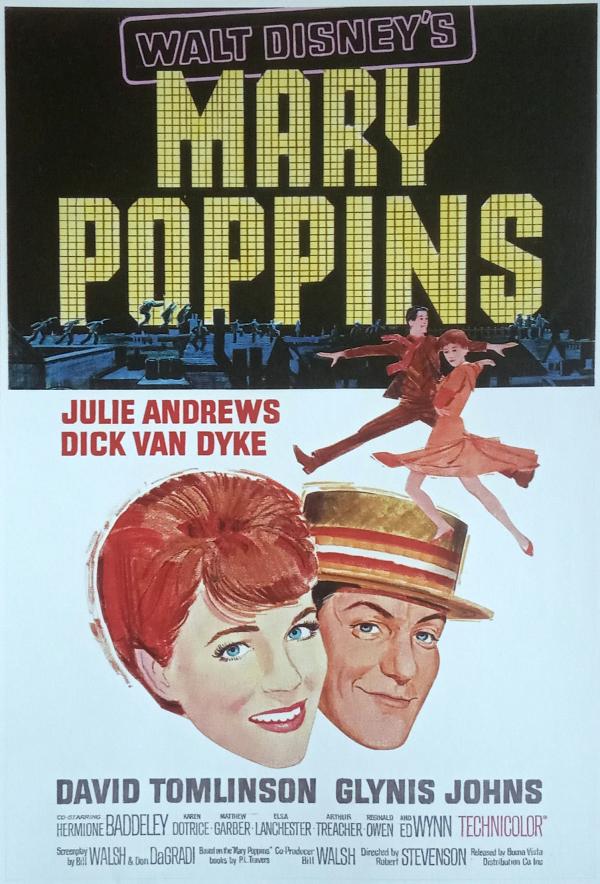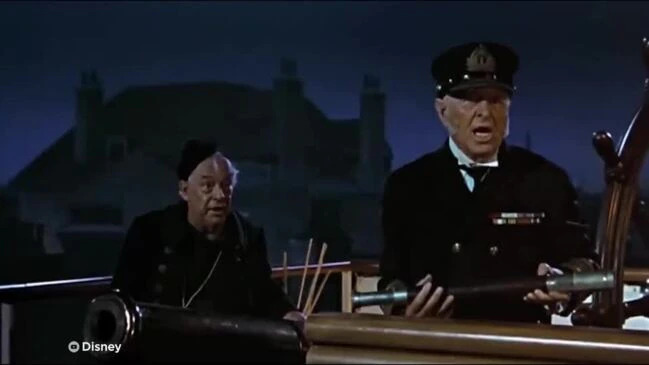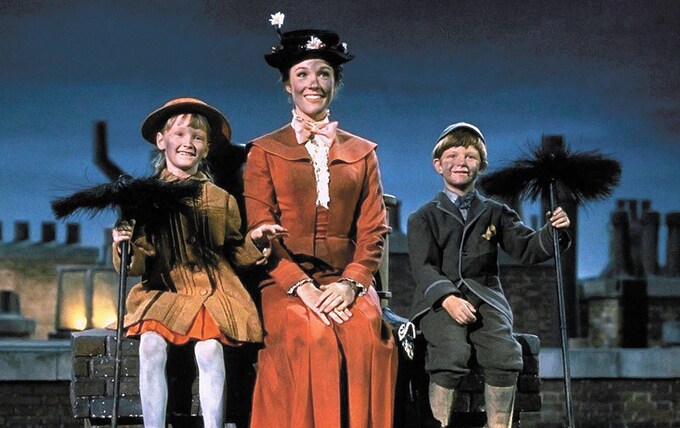
2024 marks the 60th anniversary of the release of Disney’s classic film “Mary Poppins.” Disney has announced that it will launch a re-release of the film in the near future. However, the British Board of Film Classification recently stated that it will re-rate "Mary Poppins" from the original broadest universal rating (U rating, suitable for everyone to watch) to the next level parental guidance rating (PG rating, suitable for everyone to watch). Everyone can watch it, but children under 12 years old should watch it under adult guidance). The reason behind it is because of a word in the line.

"Mary Poppins" poster
"Mary Poppins" starring Julie Andrews tells a heartwarming story that took place in London in the spring of 1910. The Banks couple, who were busy with their careers, had no time to take care of their two children, so they had to hire nannies to do it for them, but the effect was often counterproductive. Fortunately, the fairy Mary came to earth to make the Banks family live in harmony again, and also made the Banks couple understand what is most important in life.
"Mary Poppins Returns" was released in the summer of 1964 and became the highest-grossing film in North America that year. It was nominated for 13 Oscars - it still holds the record for the highest number of nominations for a Disney film, and eventually won five including Best Actress. Awards. In 2013, the film was selected for inclusion in the Film Heritage Preservation Project of the Library of Congress, earning it the supreme status of a national treasure. In recent years, two new works inspired by or adapted from it have been released, namely "Big Dreamer" starring Emma Thompson and Tom Hanks and "Mary Poppins Returns 2" starring Emily Blunt. ”, all received enthusiastic response from the market.
This time, the reason why the British Board of Film Classification revised the rating after 60 years was related to the lines of the eccentric admiral played by Reginald Owen, the neighbor of the Banks family in the film. Once, he jokingly asked the Banks children: "Are you going to fight the Hottentots?" Another time, after seeing the fairy nanny and a group of chimney sweeps singing and dancing on the roof, he asked He shouted in fright: The Hottentots are coming! "

In the film, the admiral who often uses binoculars to monitor the surroundings is a representative of the old antiques.
Yes, it was the word Hottentot that caused the problem. It refers to an aboriginal group living in southern Africa. They call themselves Khoikhoi. However, in the mid-17th century, the Dutch colonists of the East India Company came here and called them Hottentots according to their own ideas. We call them (the specific etymology is still unclear), and they have been called for hundreds of years, and the meaning has gradually expanded, producing meanings such as "barbarians" and "cannibals", becoming some kind of derogatory term used in general terms. It was not until the turn of the century that the Netherlands and other Western European and American countries began to face up to this problem, gradually using the name Khoikhoi to refer to this group of people, and defining Hottentot as a discriminatory and sensitive term.
"Mary Poppins Returns" was re-released in British theaters in 2014 to coincide with the 50th anniversary of its release. At that time, the British Film Classification Board also re-reviewed the film in accordance with the rules, but did not make any decision to change the classification and still maintained its universal rating. Ten years later, the film was reclassified. Whether it was a fuss over a molehill or keeping pace with the times, different voices emerged in British society.
The British Board of Film Classification said in a public statement to the media, "We know from relevant research on racism and anti-discrimination that a major concern of British parents is that their children may be exposed to various forms of discrimination in film and television works. Sexual language or behavior, minors may unconsciously repeat these language or behavior." Therefore, it is necessary to re-evaluate the classification of movies like "Mary Poppins". As for the other side of the United States, the MPAA, which is responsible for film classification, set the most popular G rating for the film back then. There is no news that they have responded or followed up on their British counterparts.
In fact, in addition to the "Hottentot" issue, some American scholars pointed out a few years ago that "Mary Poppins" also had the stain of white actors "smearing their faces and pretending to be black". The aforementioned Admiral Neighbor character mistook the fairy nannies and workers on the roof for African "Hottentots" precisely because their faces were stained and smeared while sweeping the chimney.

Mary and children blackfaced by chimney ashes
From the perspective of fans who like "Mary Poppins", this is purely a plot arrangement and self-consistent logic, and it cannot be said that white people deliberately painted blackface. However, in the eyes of critics, the scene of a group of white people wearing black faces, singing and dancing, is basically derived from the white blackface show (Minstrel Show) in the early years, and the "Hottentot people" in the mouth of the old antique neighbor are even more This proves the creator’s bad intentions from the side.
Did the chimney sweep accidentally blacken his face, or did he deliberately make fun of black people? I'm afraid we can only stand on different standpoints and say that everyone is different. By the same token, outsiders will certainly have different opinions on whether this practice of judging old-era works by new-era standards is a progressive move that keeps pace with the times, or a revision of historical nihilism.
In recent years, many Disney classics, including "Dumbo" and "Peter Pan," have been re-evaluated, and reminders have been added to streaming platforms in advance because of outdated details. For the time being, it seems that, like the British Film Classification Board's change of the classification of "Mary Poppins", this is probably the best workaround - throw away the dirty water and keep the children.


